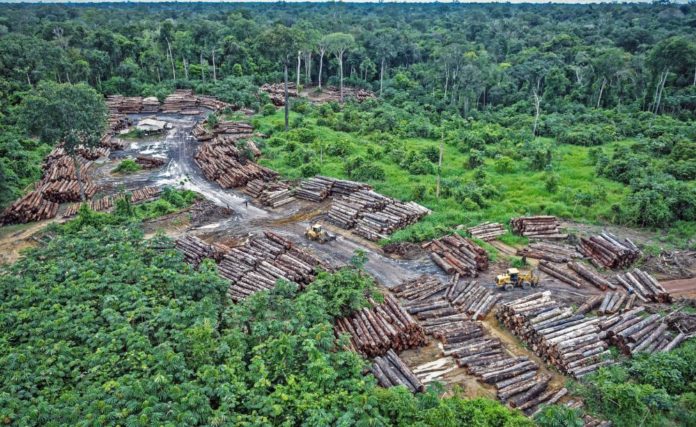By Amin Kef Sesay
The Ministry of Environment has focused attention on climate change and its mitigation. Deforestation, shifting agricultural cultivation, mining, clearing of forests for new human settlements, firewood and charcoal burning continue to create the conditions for aggravating climate change in both rural and urban Sierra Leone.
Climate Change has had adverse effect on the environment, agriculture, food security and even the lives and livelihood of large communities as forests become decimated.
Fishermen have lost their lives in storms and passenger boats have encountered weather-related accidents.
Notably, in Freetown in August 2017, communities across the western area were hard hit by landslide and floods that were attributed to climate change.
In provincial communities,, flooding is known to have affected agriculture and habitats of people and their suffering aggravated by the attending health problems of water-borne diseases (typhoid, dysentery, cholera and diarrhea) due to lack of safe drinking water.
Over the last decade, Sierra Leone has developed many adaptation projects to address the adverse effects of climate change, including disaster management, based on existing coping mechanisms and practices such as developing and enacting appropriate policies and regulations relevant to the development of coastal communities, urban growth planning, and critical coastal ecosystems preservation and the Establishment of a National Sea- Level Observing System for Sierra Leone.
Climate change is one of the greatest challenges facing humanity today. Climate change affects every country and can have devastating effects on communities and individuals.
Developing countries like Sierra Leone are the most impacted by climate change and the least able to afford its consequences.
Their vulnerability is due to multiple factors that limit their ability to prevent and respond to the impacts of climate change. As such, climate change has the potential to reverse significant development gains made in these countries.
Gender inequalities and development gaps increase the impacts of climate change for women, especially for those that depend on natural resources for their livelihoods.
Thus, activists maintain that environment and climate action are most effective when women and girls play an active role. While they are the most vulnerable, women and girls are also powerful agents of change to advance action on climate change, pollution and other environmental concerns.
On the global front, in efforts to mitigate climate change, in March 2015, UN member States agreed to implement the 2030 Agenda and the accompanying Sustainable Development Goals (SDGs).
The Climate Action goal – SDG Goal 13 – calls on the international community to take urgent action to combat climate change and its impacts. To achieve SDG 13, all countries will need to make efforts to accelerate and intensify their actions and investments on climate change.
In December 2015, the parties to the United Nations Framework Convention on Climate Change (UNFCCC) adopted the Paris Agreement. Major financial investments, from both public and private sources, will be needed to tackle the challenges of climate change.
In support of the Paris Agreement, Prime Minister Trudeau announced that Canada would provide $2.65 billion (2015/2016 to 2020/ 2021) to help developing countries tackle climate change. Canada’s financial commitment supports:
Initiatives that significantly reduce greenhouse gas emissions, in line with developing countries needs and plans.
Adaptation action particularly for the poorest and most vulnerable, including women and girls.
Mobilizing new private sector capital for climate action in developing countries
Funding is invested in sectors such as: Clean technology and renewable energy, Climate-smart agriculture, sustainable forestry, Watershed management and Climate resilience.
These measures are consistent with a pathway towards low-emission, climate-resilient development.




